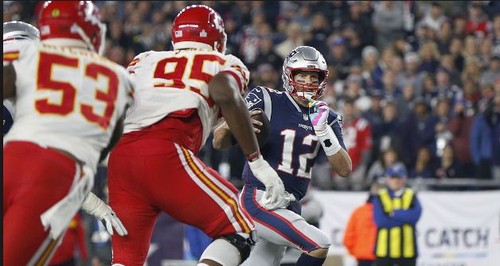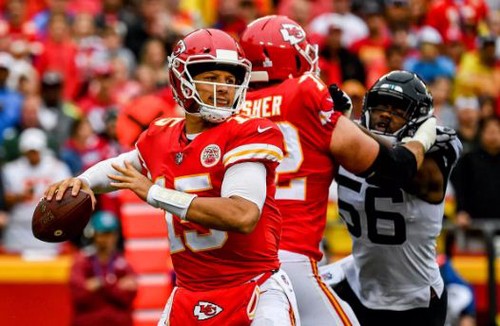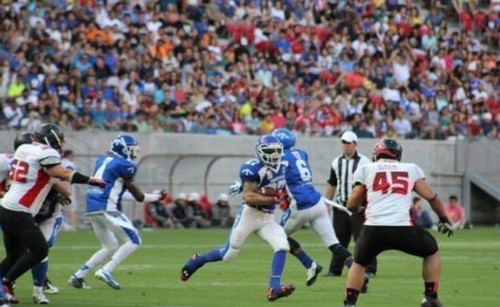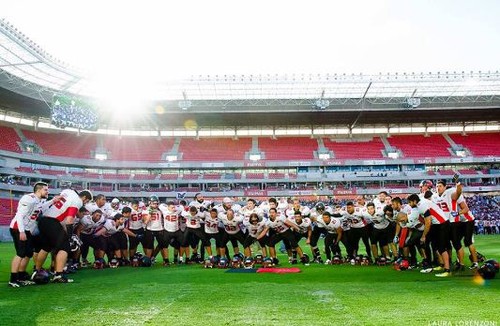
I've followed the NFL since 1998, when I moved to the United States at the age of seven. From then on I have fallen in love not only with the sport itself, but with the history of the game, with idols and legends of the past and the present. During that time, I have been reading biographies of great head coaches and great players, and short stories of journalists who translate what happened in past periods of football. For much of my journey through sport one factor has been prevalent: defense wins championships.
From the Steelers 'powerful Steel Curtain of the 1970s to the Patriots' supremacy in the new millennium, with Bill Bellichick's defense of la Parcells, defenses undoubtedly make a difference. Even in Super Bowls. Perhaps the great proof of this is Peyton Manning's Super Bowl series in the Broncos. In 2013, Peyton arrived in the Broncos with the new GM John Elway. That year the team had what was possibly the best attack in league history (in my point of view only loses for the 2001 Rams) breaking records and running over rivals. The Broncos came in with the championship in the final. However, before the Legion of Boom of Seattle, the Broncos were run over by the Seahawks, who raised the cup.

Oddsshark
John Elway learned from the loss, hired Wade Phillips, the league's main defensive mind, and set up No Fly Zone, a terrifying defense led by Von Miller. The defensive investment took the team to the second Super Bowl in three years. This time with a Peyton Manning far from brilliant, the Broncos faced the league's best attack, the Cam Newton Panthers. The result was an individual Miller show, MVP's game, and one more Vince Lombardi for the Denver trophy room.
The NFL is full of such examples. Steve Young's 49ers only won the Super Bowl when the team made the strong investment in defense, including the signing of Deion Sanders and Richard Dent after years of hitting the board with the best attack in the league. The 2001 Rams, already quoted here with Greatest Show on Turf, stagnated in the Super Dome before the Patriots' prolific defense by Ty Law, Lawyer Milloy and Teddy Bruschi. The New England team, when it switched to a more offensive DNA with that great Brady and Randy Moss attack that went 16-0 in 2007, died on the beach in the face of Michael Straham and Osi Umenyiora's explosive pass rush. While some of the best attacks in NFL history have not won the Super Bowl, the best defenses almost always ended the league with the best team in the world.

The truth is that attack sells tickets. The rules are adapted to protect offensive players for security reasons, but also to increase the number of points scored per game. Personally I love a game caught between two big defenses, but it does not have anything like seeing a high-level attacking attack. However, the past few years are beginning to signal a change in the league. The last two Super Bowls were won thanks to great offensive performances, with the best defenses disappointing in the big game and offensive players carrying the game under their arm. If in league history focusing on putting up a great defense and having an efficient ground game or a precise QB in third downs was the recipe for success, nowadays we are headed to an NFL where having a defense to turn out the lights is not enough to win titles.
In 2016 the league counted on the defenses of Texans, Cardinals, Seahawks and Broncos like the best ones of the league. The Super Bowl brought us the confrontation of two explosive attacks, Atlanta and New England, which, together with the Saints, led virtually all of the NFL's offensive statistics. It's a good thing the Patriots were the team that suffered the least points in the NFL, but that was thanks to the excellent control of the game on the offensive, and a strong defense in the red zone, the classic bend but do not break, , while the Falcons made the decision with one of the league's worst defenses statistically.

The 2017 season brought us the extremely dangerous defenses of Jacksonville and Minnesota. Two teams that invested heavy, with quality pass rushers to dominate any OL and a group of secondary to give nightmares. We did not find anyone with many arguments to argue that these were the league's main defenses in 2017. But both teams were defeated in the conference finals for rivals who adopted the strategy that attacking was the best defense. Yes, the Eagles did not have a bad defense in 2017, quite the opposite. They reached the Super Bowl thanks to great defensive performances, with a pass rush full of top-level players. The Patriots also ended the year with a defense that can not be statistically considered weak. However, analyzing the New England games well, it was clear that it was a defense fraught with major shortcomings.
When we have conference finals with Case Keenum, Blake Bortles and a Super Bowl MVP like Nick Foles, we have to rethink the importance of American football's glamor position. When the big defenses begin to take ugly of the big attacks in the decisive games, we have to rethink if they are still who win titles. As a lover of great defenses, I find it hard to admit it. But today's NFL belongs every week a little more to the teams that let the pig skin fly without fear.
Comments